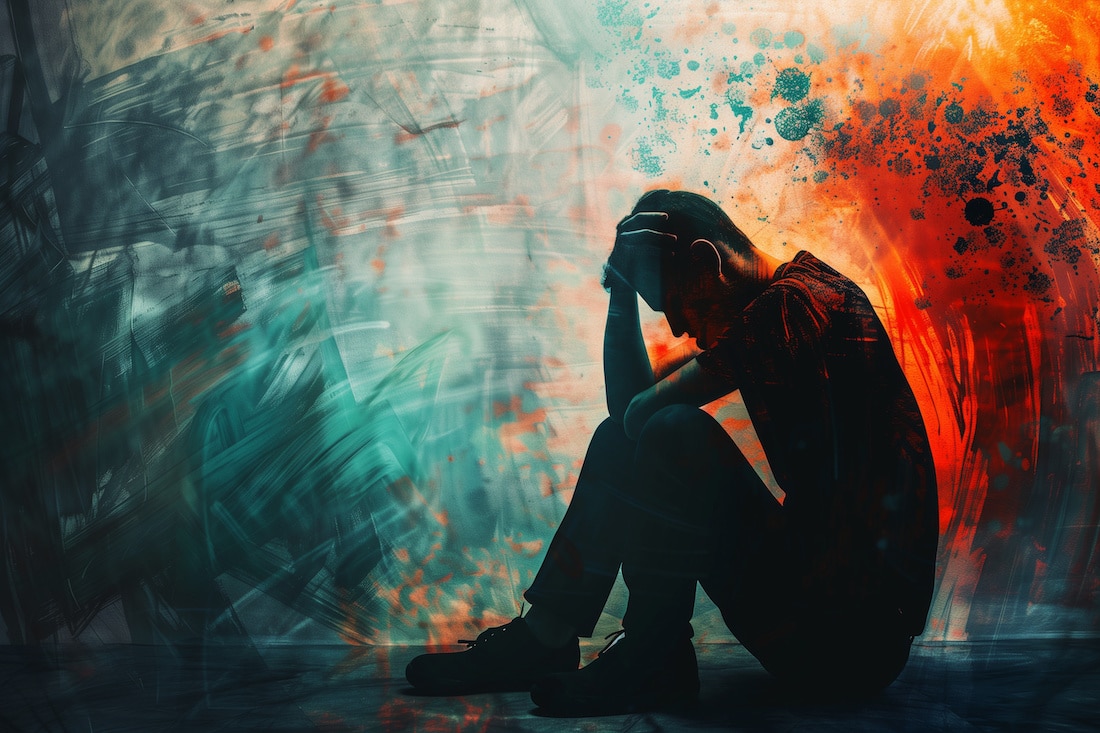 If you have both a substance use disorder and a mental illness, this is known as dual diagnosis or co-occurring disorders. Dual diagnosis includes any combination of addiction or substance abuse with one or more mental health disorders. The best way to attain long-term improvement of symptoms is by treating both conditions at the same time rather than trying to treat one without also treating the other.
If you have both a substance use disorder and a mental illness, this is known as dual diagnosis or co-occurring disorders. Dual diagnosis includes any combination of addiction or substance abuse with one or more mental health disorders. The best way to attain long-term improvement of symptoms is by treating both conditions at the same time rather than trying to treat one without also treating the other.
As many as 9.3 million adults, or approximately 3.7 percent of the population, had both a substance use disorder and a form of mental illness in 2018 according to the National Survey of Drug Use and Health. Among young adults age 18 to 25, 2.4 million had dual diagnosis in 2018, which is approximately 7.2 percent.
Why Mental Illness and Substance Use Disorder Frequently Occur Together
Certain risk factors can lead to either mental illness or substance use disorder or both conditions together. These factors include:
- Environmental factors – Both disorders can be triggered by environmental factors, such as abuse, stress, and trauma.
- Heredity – Mental illness sometimes runs in families, and genes can affect the way you respond to mind-altering substances.
Misusing substances can cause changes in the brain that increase the chances of developing a mental illness. At the same time, it’s not uncommon for people who have symptoms of mental illness to turn to substances in an effort to relieve uncomfortable or overwhelming feelings. It’s not always clear whether one condition triggered the other or whether they developed simultaneously.
For More Information About Our Dual Diagnosis Treatment Programs
Call Us At: (310) 455-5258
Integrated Treatment for Co-Occurring Disorders
As many as half of the people in the United States who have a problem with addiction also have a diagnosable mental illness. When you have co-occurring disorders and you obtain treatment for only one or the other, you may continue to have negative experiences such as unemployment, violence, incarceration, repeated hospitalizations, relationship difficulties, and suicidal tendencies.
An integrated treatment approach combines treatment for substance abuse with treatment for mental health challenges. At a dual diagnosis treatment center, both disorders are addressed at the same time by a multidisciplinary team of professionals, allowing you to access comprehensive services. This can help you to avoid worsening symptoms of mental illness or relapse of substance abuse.
Why Integrated Treatment for Dual Diagnosis Works
Integrated treatment for dual diagnosis is an evidence-based approach that considers how more than one condition may affect you. Treatment of dual diagnosis is customized for each individual. Your treatment plan may include medication, psychotherapy, education and family involvement and support.
This approach can help you to avoid duplication of services, which may reduce cost. Rather than obtaining professional help from more than one type of treatment center at different times, integrated treatment aims to involve a team of professionals working together. This allows you to work toward sobriety, reduction of unpleasant symptoms and an improved ability to lead a healthy and independent life.
What Dual Diagnosis Treatment May Include
Behavioral treatment such as cognitive behavioral therapy or dialectical behavior therapy can help you to learn new coping skills that can reduce symptoms of co-occurring conditions. Your treatment plan may include medications to help relieve mental health symptoms.
Classes are usually offered that can help you to learn more about the close relationship between substance misuse and mental health disorders. Relapse prevention teaches you to be aware of situations that may trigger reactivity, which could lead to inappropriate behaviors or the urge to turn to mind-altering substances.
Both mental illness and substance use disorder are complex conditions with overlapping symptoms. The best way to treat both is by treating them simultaneously. When you obtain integrated treatment at a dual diagnosis treatment center, you’re separated from the environment that may have contributed to the onset of both mental illness and substance abuse, while you get professional help for different but related symptoms and behaviors.
If you or a loved one are struggling with co-occuring substance use and mental health issues like depression, anxiety, or trauma, please call us at (310) 455-5258 or submit the form below to learn more about our dual diagnosis treatment programs in Los Angeles.





